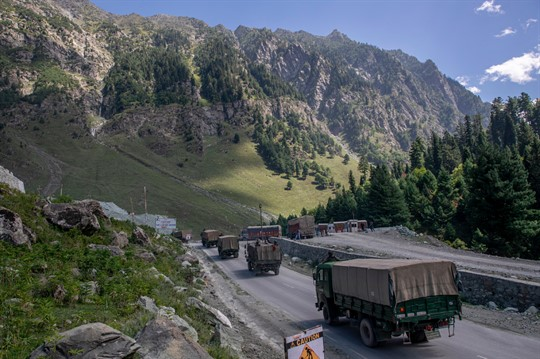India and China Need More Than a Border Pullback to Mend Fences

Along the waters of Pangong Lake, high up in the Himalayas, there was a slackening of shoulders and a collective sigh of relief on Feb. 11. After nine months of tense military confrontation, which included the first deadly clash in decades between Indian and Chinese troops along their disputed border, the two sides began withdrawing from their positions on the southern and northern banks of the lake as part of a phased, synchronized military disengagement.
By mitigating the risk of another skirmish or accident, the move has brought Beijing and New Delhi back from the brink in their border standoff. The successful disengagement was followed up on Feb. 20 with a tenth round of meetings between the Indian and Chinese commanders in the region. Five days later, Indian Foreign Minister Subrahmanyam Jaishankar spoke by phone with his Chinese counterpart, Wang Yi, affirming the disengagement as “a significant first step,” according to an Indian Foreign Ministry spokesperson. The two sides also unveiled plans to establish a diplomatic hotline to aid in future crisis management.
